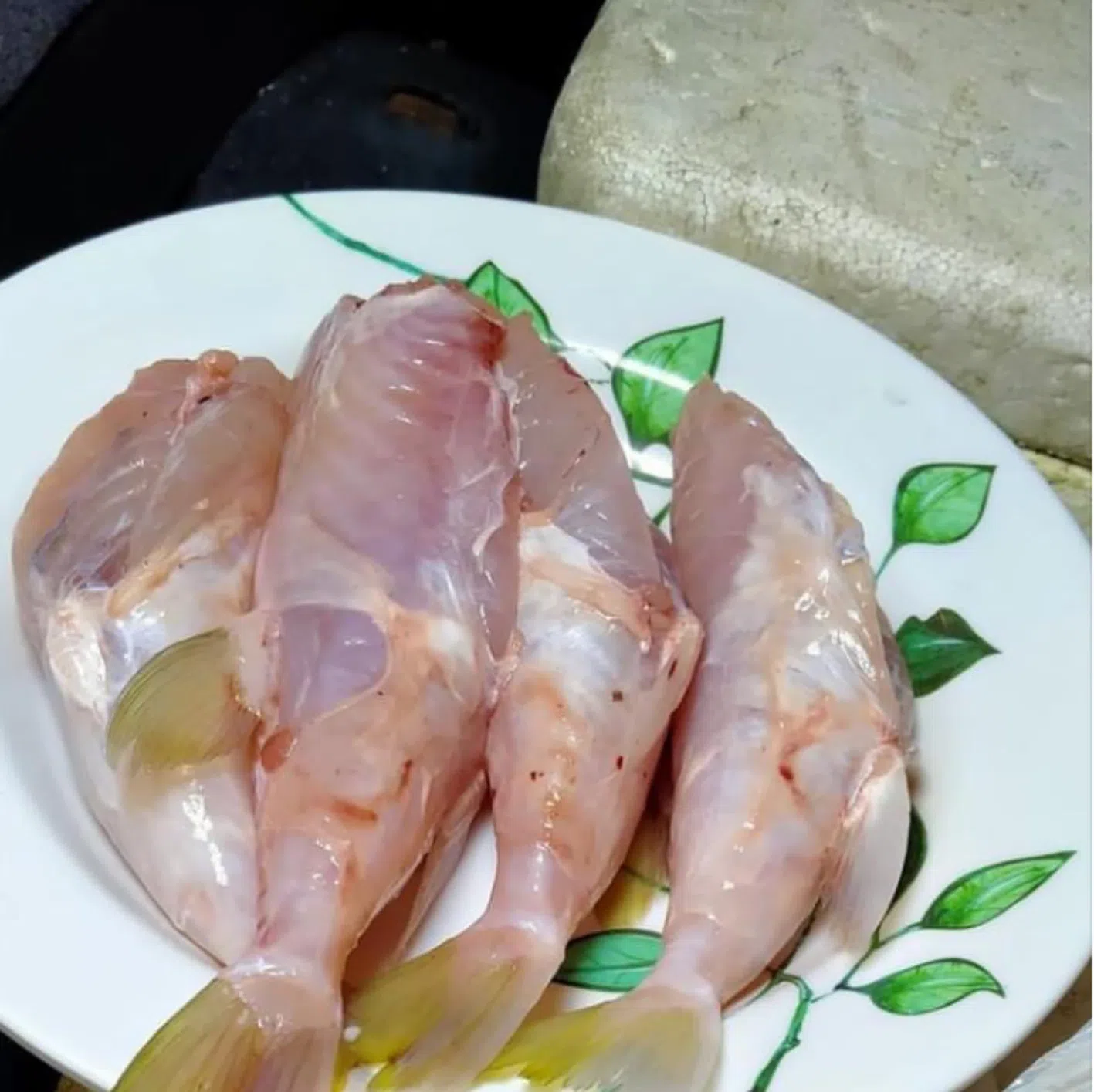Man dies of pufferfish poisoning in Johor weeks after wife’s death
Sign up now: Get ST's newsletters delivered to your inbox

A Malaysian couple, Ng Chuan Sing, 84, and Lim Siew Guan, 83, from Kluang, Johor, have died after eating pufferfish.
PHOTOS: COURTESY OF NG AI LEE
Follow topic:
KUALA LUMPUR – Two weeks after his wife died of pufferfish poisoning,
The death of the elderly couple from the village of Chamek, in Kluang, Johor, has raised questions over the effectiveness of Malaysian laws and enforcement concerning the sale of the fish, which is purportedly being sold to unsuspecting customers who are unaware of the risks.
“It is with deepest sadness I inform you that I have lost my father this morning,” their daughter Ng Ai Lee, 51, told The Sunday Times in a WhatsApp message.
Ms Ng, the chief financial officer of a publicly listed company, is now campaigning to raise awareness among the public on the dangers of eating pufferfish.
She claims that the fish is openly traded on Facebook Live, e-commerce platforms and at stalls.
According to Ms Ng, her father, Mr Ng Chuan Sing, 84, had bought the pufferfish from his regular fishmonger.
It was the first time he had bought pufferfish, and had no idea it was poisonous. He bought 1kg for RM18 (S$5.50) on March 25.
After Mr Ng and his wife ate the fish for lunch, they suffered numbness in their hands and legs.
On the way to hospital, Ms Lim Siew Guan, 83, experienced shortness of breath. She lost consciousness upon arriving at the emergency department. Mr Ng also became breathless shortly after that. Ms Lim died at around 7pm the same day.
“Many residents in our home town commented they have purchased from the same seller before, without knowing it is poisonous,” said Ms Ng. “The fishmonger’s WhatsApp messages claimed her fish is safe to consume as she has sold this fish for years and no one has been hurt.”
According to news reports, the pufferfish came from a fisherman from the coastal Johor town of Mersing and was processed by a distributor in Batu Pahat.
Ms Ng is now urging the government to take action against those responsible and strengthen the enforcement of existing laws.
She said: “If the current legislation is not sufficient, amendments should be made to eliminate the trading of the fish. I doubt that we can regulate licences for sellers of pufferfish in Malaysia, hence we should ban this fish from being traded.
“It is important to educate the public, and traders should have the social responsibility to stop trading. This incident will soon be forgotten, but no life should be lost further due to the poisonous fish. It is of utmost importance to create more awareness to protect lives.”

The elderly couple suffered numbness in their hands and legs after eating the puffer fish.
PHOTO: COURTESY OF NG AI LEE
Malaysia’s director-general of health, Tan Sri Noor Hisham Abdullah, said in a social media post on March 30 that Section 13 of the Food Act 1983 prohibits the sale of any food that has in or upon it any substance which is poisonous, harmful or otherwise injurious to health.
Under the Malaysian Fisheries Development Authority Act 1972, fish containing toxins are also not allowed to be sold. But there are no specific laws pertaining to the sale of pufferfish.
Data from the Health Ministry showed that there have been 58 cases of pufferfish poisoning from 1985 to March 2023, involving 18 deaths.
Kluang MP Wong Shu Qi said there has to be stricter regulation, and not everybody should be allowed to buy raw pufferfish.
“For instance, only licenced chefs with the knowledge and skill for handling pufferfish should be allowed to purchase it. That is how the Japanese government regulates it,” she added.
Johor assemblyman Chew Chong Sin said the incident is currently being investigated by the Health Ministry.
Dr Noor Hisham said that a survey carried out by the Food Safety and Quality Division in 2019 showed that 86 per cent of respondents, comprising members of the public, fishmongers, fishermen and cooks, had sufficient knowledge on the dangers of consuming pufferfish. Details about the number of respondents and whether the survey was conducted across the country were not available.
However, many Malaysians still remain unaware of the dangers, and that the fish is sold openly in the country.
“The fact that fishermen can catch them and sell them on the markets should be considered a crime,” said freelance writer Amanda Khor, 35.
Florist Candice Ng, 43, said her mother had previously bought pufferfish from a market in Johor Bahru. Ms Ng said she found out only later that it was pufferfish.
“My mother didn’t know it was poisonous. I told her never to buy it again,” she said.


